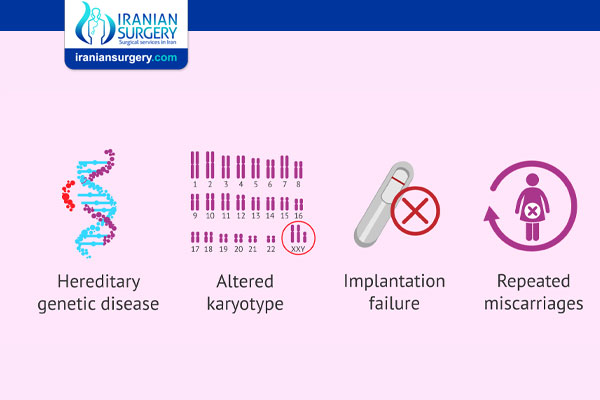When Was PGD First Used?
When Was PGD First Used?
Pre-implantation genetic diagnosis (PGD) is a laboratory procedure used in conjunction with in vitro fertilization (IVF) to reduce the risk of passing on inherited conditions. Some of the most common reasons for PGD are specific single-gene conditions (such as cystic fibrosis or sickle cell anemia) and structural changes of a parent's chromosomes. Families may also use PGD when a member of the family needs a bone marrow donor, as a way to have a child who can provide matching stem cells.
Typically, couples in need of these techniques are not infertile but have a family history of a condition and want to reduce the risk of having another child with significant health issues or early death. Through generally available genetic screening, however, occasionally couples who are seeking fertility treatment are found to be at risk of passing on an inherited condition, and PGD may be an option for them.
PGD History
Edwards and Gardner successfully performed the first known embryo biopsy on rabbit embryos in 1968. In humans, PGD was developed in the United Kingdom in the mid-1980s as an alternative to current prenatal diagnoses. [1] Initially, PGD revolved around determination of gender as an indirect means of avoiding an X-linked disorder. In 1989 in London, Handyside and colleagues reported the first unaffected child born following PGD performed for an X-linked disorder.
As of 2006, more than 15,000 PGD cycles have been reported. [2] PGD is currently available for most known genetic mutations. [3] Although the indications for PGD are well established, PGS is a relatively new, evolving technique and remains controversial.
When is PGD Indicated?
PGD testing is indicated when certain risk factors are present, including but not limited to:
. When there is a familial history of hereditary genetic disorders
. When chromosomal abnormalities are present in (or carried by) one or both partners
Couples already undergoing PGD to screen for chromosomal abnormalities may also decide to screen embryos for chromosome number, which includes the gender chromosomes. This is especially useful if family balancing is a secondary concern.
In the case of sex-linked genetic disorders, such as hemophilia or Duchenne Muscular Dystrophy, which generally affect only male children, PGD can be also be used for gender selection to choose only female embryos which will not be affected by the disorder. Only embryos that are genetically normal are transferred into the patient’s uterus.
The PGD Procedure
PGD uses IVF, in which multiple eggs are matured and retrieved. The oocytes — or primitive egg cells — are inseminated with a single sperm using intracytoplasmic sperm injection.
The resulting embryos are grown in culture until the six-to-eight-cell stage, which is day three of embryo development. At this point, the embryo is biopsied with the removal of one to two cells. This process does not damage the cells remaining within the embryo.
The isolated cells are evaluated for specific genetic conditions. Embryos that are found to be unaffected are transferred back to the woman's uterus on day five of embryo development.
Two main techniques are used for the genetic assessment:
. Polymerase chain reaction (PCR) In PCR, multiple copies of the gene of interest are made by a process of amplification. This amplification process allows the identification of very small amounts of DNA to make the diagnosis.
. Fluorescent in situ hybridization (FISH) FISH allows the laboratory to count the number of chromosomes in an isolated cell. This technique is used primarily for expected abnormalities in chromosome number, such as Down syndrome, or translocations (defects in the structure of the chromosome).
About Iranian Surgery
Iranian surgery is an online medical tourism platform where you can find the best doctors and fertility specialists in Iran. The price of PGD in Iran can vary according to each individual’s case and will be determined by an in-person assessment with the doctor.
For more information about the cost of PGD in Iran and to schedule an appointment in advance, you can contact Iranian Surgery consultants via WhatsApp number 0098 901 929 0946. This service is completely free.
Source:
https://www.ucsfhealth.org/treatments/pre-implantation-genetic-diagnosis
https://emedicine.medscape.com/article/273415-overview#a1


